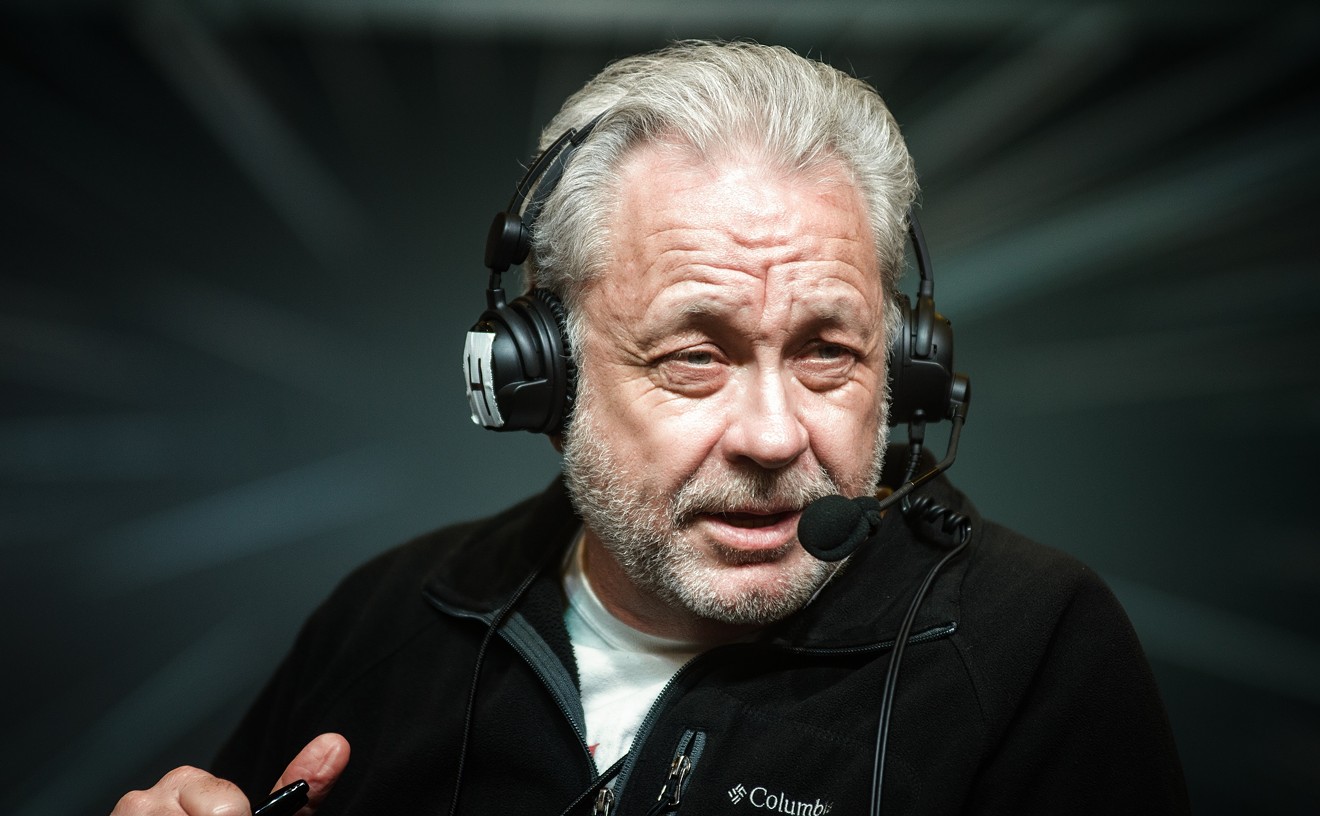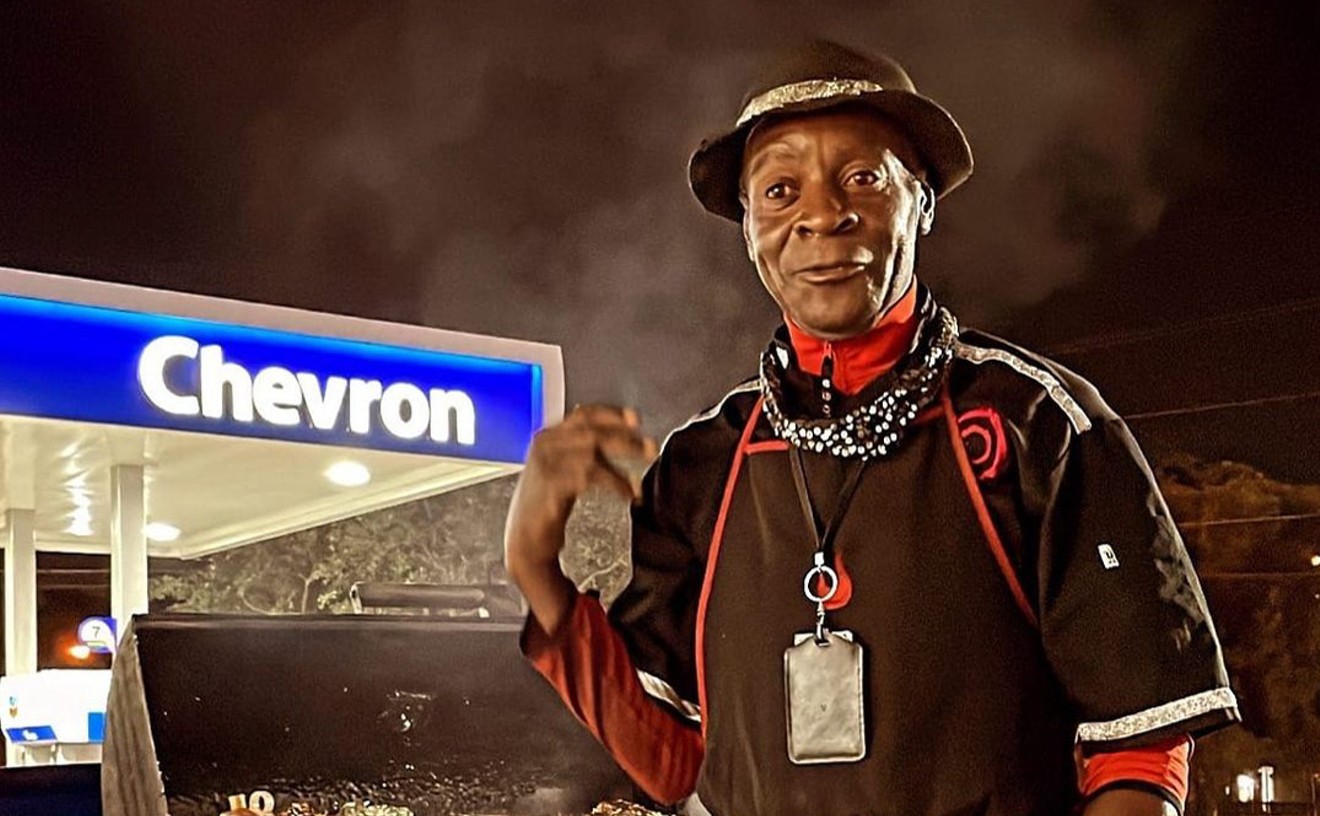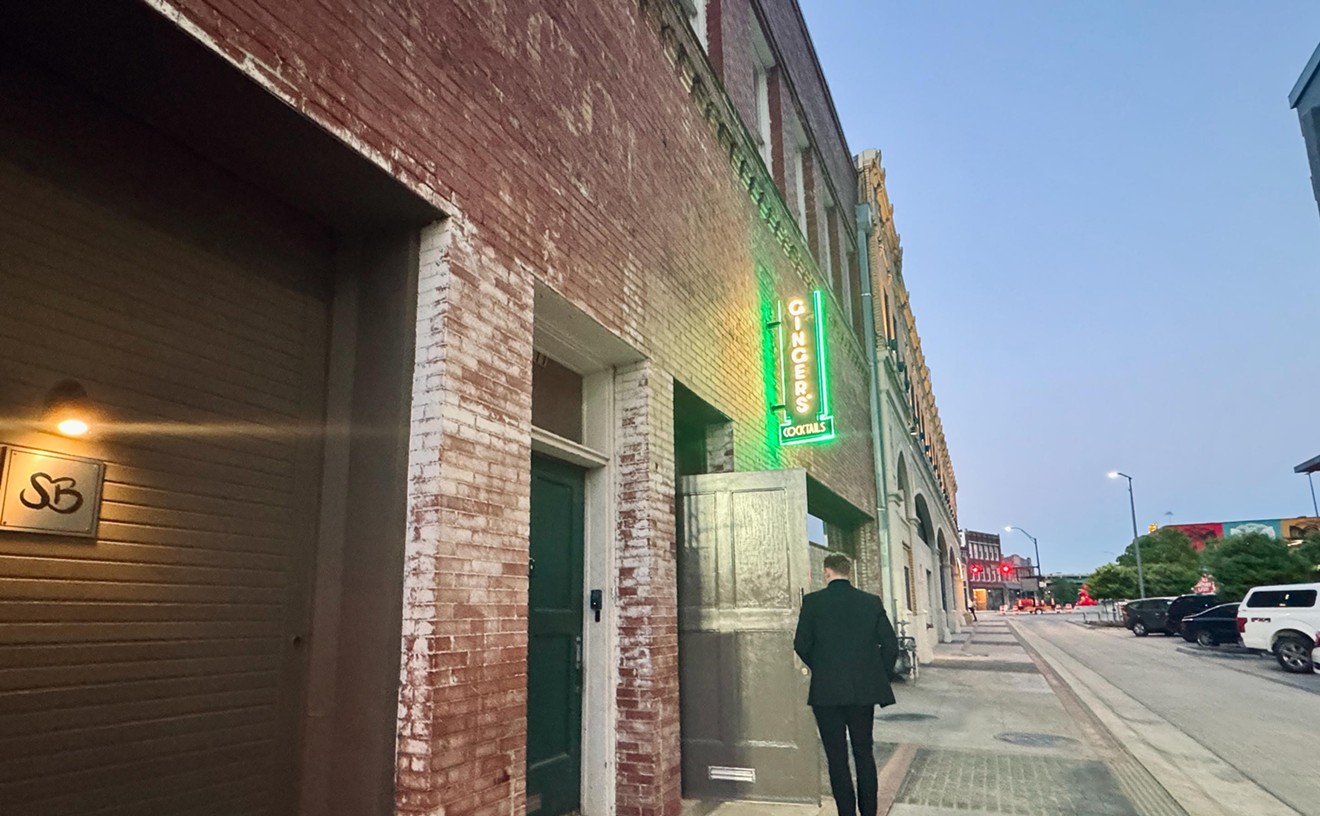Texas-born filmmaker Robert Rodriguez can't help grinning at his own handiwork as the action explodes across twin video monitors.
"Awwwwwriiiiight!" he exclaims, cranking up the volume of the Lightworks editing unit that takes up most of his Del Rio motel room. "You know, we can't get a stunt double for Banderas. Nobody can move like this guy."
His voice is drowned out by another volley of gunfire. On the video screens, Banderas is allowing the bad guys to take their best shots. "You missed me!" he jeers at a particularly bad marksman.
"Of course, the Mariachi never misses," Rodriguez notes. "He just keeps coming up with these new shooting techniques. This movement here--we call this 'The Whip.' And it works, see. The bullets go around corners and hit people."
Rodriguez pushes another button on the console, and another image appears on the monitors.
It's Quentin Tarantino, the exuberant auteur of Reservoir Dogs and Pulp Fiction, trying to talk his way out of a dangerous situation. He's in the back room of the bar, hoping to score a drug deal with a couple of thugs, when Banderas begins to blast away the bad guys. The thugs in the back room think Tarantino has set them up.
"Look, man," Tarantino desperately explains. "I had nothing to do with..." Blam! A single shot to the forehead ends the conversation. Tarantino dies as messily as a character in one of his own movies.
"See that?" Rodriguez asks, beaming like a child who's just been told that, starting next week, every Friday will be Christmas. "Let me show you again. This is a real cool editing system. They made this stuff real easy so, like, you learn to work it in a half-hour."
But isn't it more than a little ironic that this Lightworks system cost most than the entire budget of Rodriguez's previous movie?
"Are you kidding?" he replies. He picks up a small black rectangular box that looks like a CD player you might connect to your living-room stereo. "Man, this alone cost more than El Mariachi."
Rodriguez isn't exaggerating. Four years ago he filmed El Mariachi, his debut feature, just down the highway and across the Rio Grande in the hardscrabble border town of Ciudad Acua. Miraculously, he managed to complete the action opus with a borrowed camera, a handful of friends, and a frayed-shoestring budget of $7,225. Now he has returned to the scene of the crime with nearly 1,000 times that amount to film a sequel for Columbia Pictures.
Desperado is what they finally decided to call the sequel that opens August 25 in theaters nationwide. During production last fall in Del Rio and Ciudad Acua, the movie was known variously as Pistolero, Desperado, and, briefly, The Return of the Mariachi.
"When I first wrote it," Rodriguez said two weeks ago in Los Angeles, "the original title was Pistolero. But the studio thought that sounded too Spanish, so they wanted me to change it to Desperado. I said, 'Just so long as they don't ask me to use that Eagles song.'"
Laughing, he added, "Sure enough, someone asked, 'Hey, why don't we use a down-and-dirty version of the Eagles song [on the soundtrack]?' And I said, 'Nah!'"
Rodriguez was prepared to ward off many other "helpful suggestions" from studio bigwigs during the production of Desperado. But the entire experience turned out to be remarkably hassle-free, in large measure because, once again, Rodriguez knew how to pinch pennies and stretch dollars. He filmed his sequel on a budget of $7 million--by Hollywood standards, a mere pittance.
"And the great thing is, because they gave me so little money to make it, the studio left me alone after a while," he says. "I mean, this is the amount they wouldn't even use to make some little comedy. Usually, they'll give you $7 million when you make one of those little personal dramas where you might make a little bit of money, or you might not. You never get an action movie for that much.
"So they couldn't lose. Even if the movie sucked completely, they'd make all their money back internationally because it's an action film with Antonio Banderas."
El Mariachi, which Rodriguez financed by serving as a human guinea pig for a pharmaceutical company, never was intended to be seen by ticketbuyers. The movie, a fast-paced melodrama about a musician who's mistaken for a notorious hit man, was the product of an ambitious scheme hatched by Rodriguez, then a 23-year-old University of Texas student, and two co-producers: Elizabeth Avellan, his wife, and Carlos Gallardo, a fellow student drafted to play the title role.
According to the original scenario, they would film three micro-budget action flicks back to back--selling the first to pay for the second, then the second to pay for the third--for the Spanish-language video market. That way, they could gain all the benefits of hands-on experience without risking the possible embarrassment of having a future employer actually see the mistakes they made. "I figured, no one [in Hollywood] would ever rent it," Rodriguez says. "I mean, do you ever go to the Spanish video market and rent a movie? And even if you did, would you ever rent an action movie called The Guitar Player?"
But when he sent a tape of El Mariachi as a calling card to the prestigious International Creative Management agency, ICM's Robert Newman liked what he saw. He sent a dupe to Columbia, where the movers and shakers were similarly impressed. One thing led to another, El Mariachi got a theatrical release, and Rodriguez was signed to a two-picture development deal.
The unlikely rise of Rodriguez and his no-budget movie was the stuff of instant legend when El Mariachi hit theaters in early 1993. But a key detail somehow got overlooked in most of the press coverage: The ending of this Cinderella story wasn't nearly as happy as most folks assumed.
El Mariachi ended up grossing "only about $1.8 million," says Desperado producer Bill Borden. "Now, if you look at it in terms of percentages--the movie only cost $7,000, and then Columbia put a couple of hundred thousand dollars into finishing it, bringing it up to 35mm and re-dubbing it so you could release it in big theaters. Well, you know, to invest a couple of hundred thousand dollars into a movie that returned $1.8 million was not such a bad investment.
"But the reality of that investment is it didn't make them any money," Borden explains. "By the time you put in the cost of [prints and advertising], and flew Robert around for all the publicity trips and all that stuff, it was a break-even proposition."
All of which goes a long way toward explaining why the people involved with the second feature--including Rodriguez himself--were more than a little ambivalent about what to call the new film, and how closely to associate it with its predecessor.
To put it another way: It didn't seem like such a good idea to call it El Mariachi 2, considering how few people actually bought tickets to El Mariachi 1. (The first film, it should be noted, subsequently reached a much larger audience on video and cable.) On the other hand, Columbia didn't want to distance the sequel so far from the original that it couldn't take advantage of all the hype generated by the first film.
Ultimately, Rodriguez decided to go with a different title, yet remain faithful to the spirit of his first feature.
"Desperado," he says, "is what The Road Warrior was to Mad Max. It's like, the same character in a different movie. If you didn't see the first movie, it doesn't matter. You can still have a good time with this one."
The new movie has a lot more action, much spiffier production values and, perhaps most important, a hot property in the lead role: Antonio Banderas, the Spanish-born hunk who has managed the tricky transition from imported art-house fare (Tie Me Up! Tie Me Down! and other Pedro Almodovar films) to mainstream American movies (Miami Rhapsody). Carlos Gallardo, who played the original Mariachi, "agreed as my co-producer that, in the sequel, we had to go out big," Rodriguez says. "And we had to get a big star to play the lead, so we'd get more heat out of it.
"Besides, Carlos knew that, while he may have been the character in the first movie, where the Mariachi is still relatively innocent, he wasn't the character that Antonio has to play in Desperado. He couldn't play it that hard."
As Banderas plays him, the Mariachi is a one-man army who declares war on drug dealers in a small Mexican border town. He travels everywhere with a lethal array of weapons in a seemingly innocuous guitar case. And he doesn't aim to please.
"I am not killing just one guy once in a while," Banderas explains with a mischievous grin between takes in Ciudad Acua. "I go into a bar, and I kill 20 guys at once. So it's over the top. The movie starts, and in 20 minutes, I kill about 40 guys in two different bars."
No kidding. Desperado is a rapid-fire action-adventure that plays like Sergio Leone meets John Woo meets Tex Avery. Rodriguez may be spending only $7 million, but he's determined to give Columbia--and his audience--maximum bangs for each buck.
"When I was younger," Rodriguez says, "I used to come out of James Bond movies feeling really charged, and wanting to be James Bond. But as I got older, I didn't feel that way anymore at action movies. I used to think it was because I'd gotten older. But then I saw a John Woo movie, where I felt like a kid again. I thought, 'Man, it's not me--it's the action movies that have gotten stale. But what he's doing is so cool.' Really. I'd watch one of Woo's movies, and think, 'Wow! I want to be Chinese!'
"There was so much power with his images that I thought, 'I want to do that with Mexicans!' so that people who watch [Desperado] will think, 'Wow! I want to be Mexican!'"
Rodriguez insists that success hasn't spoiled him so far, and isn't likely to in the future. He and his wife still live in Austin, far away from the lifestyles of the rich and fatuous in L.A. And while he enjoys the relative ease of directing a film bankrolled by a Hollywood studio, he claims that if Desperado is a box-office dud--and his next film, the Quentin Tarantino-scripted From Dusk Till Dawn, also flops--he can always go back to making no-budget quickies with friends and relatives.
Still, Rodriguez admits there is something to be said for having a bigger budget.
"When we were making El Mariachi, we didn't have any money," he says. "So, in order to have something to drink between takes, we wound up buying this Gatorade powder. And since we didn't have very much, we had to mix it with a lot of water. A lot of water."
He smiles at the memory. Then he grabs a plastic bottle filled with the sports drink--full-strength, premixed stuff, purchased in a Del Rio convenience store--and takes a healthy swig.
"Now," he says, "we can get real Gatorade. That's how far we've come.










